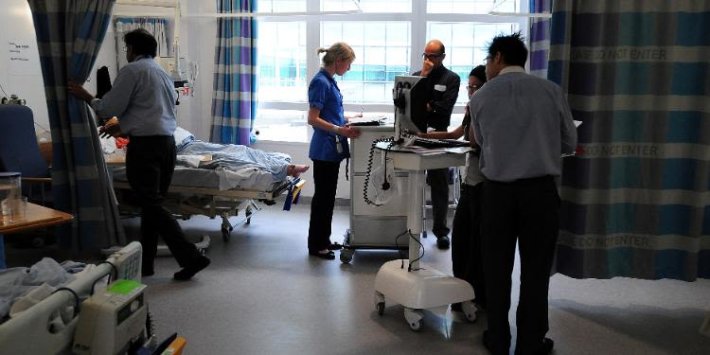NHS Backlog Hits A Record High With 5.45 Million People Waiting For Routine Treatment
The NHS backlog has hit record highs
3 min read
New figures released by NHS England today show 5.45 million people were waiting to start treatment at the end of June, the highest number since records began in 2007.
NHS groups have called for further clarity on funding to help tackle the backlog during one of the busiest summers the health service has ever seen.
The new data also shows almost 305,000 people were waiting for more than a year to start treatments, down slightly from 336,733 the previous month, while the number of those waiting more than 18 months had also fallen by almost 25,000 to just over 1.7 million.
Around 306,000 people have also been left waiting more than six weeks of key diagnostic tests such as MRI scans and gastroscopies as the NHS deals with the backlog of patients.
Professor Stephen Powis, national medical director for NHS England said staff had made "effective use of the additional resources" put in place during the pandemic, adding the health service was still "continuing to tackle the Covid backlog".
The figures also show that urgent cancer referrals made by GPs were up to 230,110 in June, a rise of almost 50% on the same period last year.
Responding to the data, Dr Layla McCay, director of policy at the NHS Confederation said the rise in cancer checks showed how much progress was being made but that the NHS still faced a "monumental challenge". "NHS teams have been working incredibly hard to restore services and care for as many patients as possible, with the number of people waiting over a year to start treatment falling by a further 32,000 month-on-month – a remarkable feat against a backdrop of workforce shortages and reduced capacity because of infection control requirements," she said.
"NHS teams have been working incredibly hard to restore services and care for as many patients as possible, with the number of people waiting over a year to start treatment falling by a further 32,000 month-on-month – a remarkable feat against a backdrop of workforce shortages and reduced capacity because of infection control requirements," she said.
"With the second highest number of people on record checked for cancer in June, it’s clear how much progress is being made. But the NHS still faces a monumental challenge.
"We cannot escape the fact that there is now a backlog of 5.5 million patients, or that pressure across the health service is still increasing, with 2.16 million A&E attendances in July – the highest since winter 2019 and amounting to some 70,000 attendances a day."
Dr McCay said the government must take further steps to protect the NHS from an "even tougher" autumn and winter period than it saw last year.
She added: "Health leaders urgently need clarity on funding for the second half of the financial year and beyond.
"Without this, trusts risk having to spend money for which they might not be reimbursed, to manage ongoing COVID-19 pressures, keep making sure people can leave hospital as soon as they are medically fit, and manage capital requirements." Dr Sonya Babu-Narayan, associate medical director at the British Heart Foundation, said the long-term picture was "obviously deeply concerning".
Dr Sonya Babu-Narayan, associate medical director at the British Heart Foundation, said the long-term picture was "obviously deeply concerning".
"Despite the NHS and its staff pulling out all the stops, we are still seeing ever-increasing cardiac waiting lists - even for heart surgery, which is not a luxury that people can live without," she said.
"Delaying cardiovascular care can lead to disabling heart failure or even cost lives.
"Tragically, we saw thousands of extra heart disease and stroke deaths in England in the first year of the pandemic, and the significant delays to care have likely contributed."
She added: "There are some encouraging signs that waiting times are improving, but the long-term picture is obviously deeply concerning.
"We need substantial long-term investment in our overstretched NHS, along with a clear plan, to prevent more lives from being lost to treatable heart conditions."
